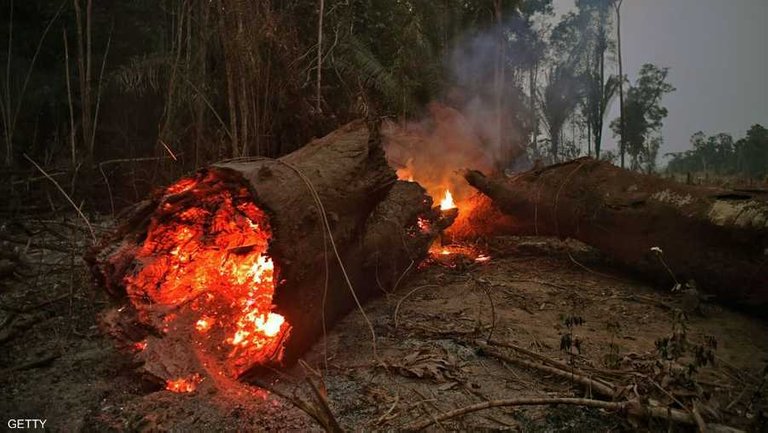
Sky News Arabia - Abu Dhabi
Fires have devoured the Amazon forests in the past few days, and have sounded the climate alarm around the world.
The US space agency NASA posted images on its Web site showing heavy smoke covering large areas of Latin America's forests, while the Brazilian state of Amazonas declared a state of emergency due to fires.
The National Institute for Space Research, in a statement on Sunday, that 1663 new fires were detected in Brazil on Thursday and Friday, half of them in the Amazon forest.
Meat of beef
"Intensive cow breeding is the main reason for logging in the Amazon," said Greenpeace researcher Romulo Batista.
Logging has doubled large areas in the spread of fires, which have moved very quickly in the fields used by farms to raise cows.
Brazil is the world's largest exporter of beef. Exports of beef reached a record amount in 2018 of 1.64 million tonnes, according to the Brazilian Meat Exporting Industries Association.
Brazil has been at the forefront of this field as a result of the rapid growth of more than 20 years. For example, beef exports increased 10-fold between 1997 and 2016, both in quantity and value.
Soy
Agricultural activities occupy about 6.5 percent of the area under logging.
Brazil is also the world's largest exporter of soy, ahead of the United States. A record 83.3 million tons of soy was exported in 2018, 22.2 percent more than in 2017, according to the Brazilian Ministry of Economy.
This increase is mainly due to the strong demand for this product in China, which is the largest customer of Brazilian GM soybeans.
The raging trade war between Beijing and Washington for more than a year has prompted China to buy more of these products from Brazil to secure livestock.
Brazil's soybean exports to China rose nearly 30 percent last year.
Soy was one of the most prominent crops that sweep the territory of the Amazonian forest. However, the decision to freeze income in 2006 contributed to containing the spread of these crops. "Less than 2 percent of the soy planted in the Amazon comes from areas cut down after 2008," explains Romulo Batista.
Europe is also buying Brazilian soy, which is used mainly for livestock, according to Greenpeace.